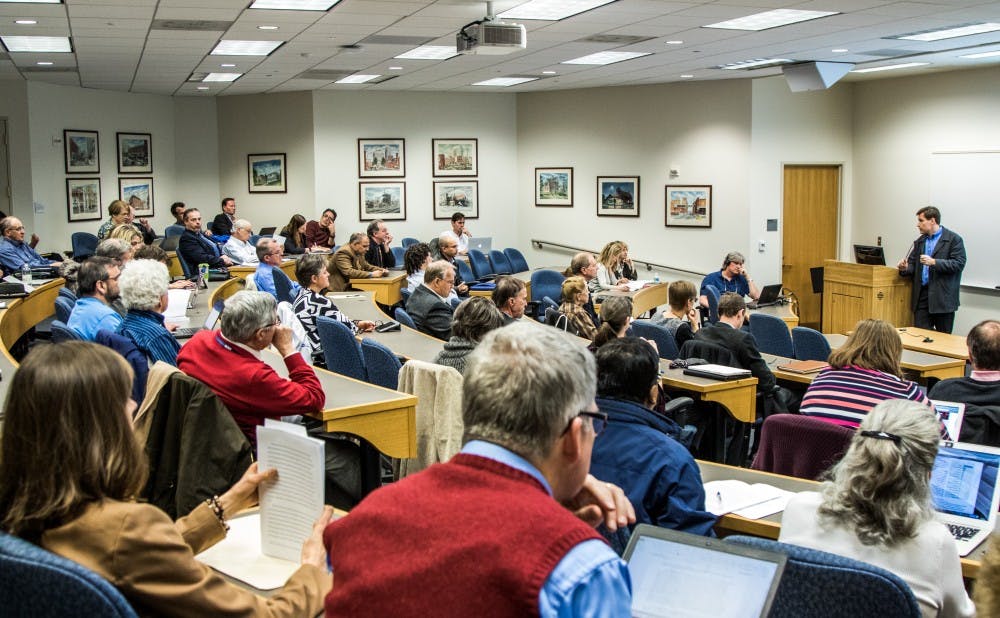During its Thursday meeting, the Academic Council heard presentations about two new programs at Duke and reviewed a statement regarding President Donald Trump’s executive order on immigration.
One proposal outlined a joint Ph.D. program between the Sanford School of Public Policy, the sociology department and the department of psychology and neuroscience. It was presented by Kenneth Dodge, William McDougall professor of public policy studies, along with sociology professor Stephen Vaisey and Elizabeth Marsh, professor of psychology and neuroscience.
The program would seek to expand job opportunities for graduates and create a greater interdisciplinary approach to public policy research, Dodge explained. He noted that it would not require any additional funding.
Dodge said that in recent years, students in sociology or psychology and neuroscience have increasingly desired to translate their research to public policy and that this program would allow them to do that.
This could be a tool in recruiting top students to Duke because other schools have similar programs, Vaisey explained.
Some members questioned how this program would be different than students in one Ph.D. simply taking some courses in a different department.
“The student wouldn't have intellectual community or benefits of being in a program,” Dodge responded. “They might have less commitment from faculty in one unit.”
The council will continue to discuss the proposal and vote on it at its March meeting.
Lesley Curtis, director of the Center for Population Health Sciences in the School of Medicine, gave a presentation about a proposal for the Center to transition into a department.
The department would examine the underlying causes of health in populations, inform policies and grow the next generation of scientists devoted to studying health outcomes, Curtis said. In addition, the department plans to create repository of electronic health data.
It would be a nonclinical department and serve as the academic home of faculty with doctoral training in public health, health services research and health measurement.
Curtis noted that the department would include both tenured and non-tenured faculty and aims to create a tenurable home for nonclinical faculty in population health.
“The work is highly collaborative and interdisciplinary,” she said “It will increase the capabilities of other departments.”
She explained that $8.25 million over four years would be required to establish the operational department.
Campbell Harvey, J. Paul Sticht professor in the Fuqua School of Business, questioned how the addition of the program would affect the School of Medicine's reputation, noting that it could reflect negatively on the school if the department did not rank in the top 10.
“Right now, in competition with departments doing this kind of work, we would fare very well,” Curtis explained. “I’d say top five would be the goal.”
The Council also approved a resolution from the Executive Committee of the Academic Council regarding Trump’s executive order on immigration.
“The need to protect the United States from terrorism requires careful vetting of all visitors, but does not justify a ban on all refugees and on the citizens of these seven nations,” the statement said. “We therefore urge the President to rescind the executive order immediately.”
In other business:
The Council approved changes to the faculty handbook discussed at its January meeting as well as proposal for a new master's degree in interdisciplinary data science, which will now go to the Board of Trustees for approval at its meeting later this month.
Get The Chronicle straight to your inbox
Signup for our weekly newsletter. Cancel at any time.

